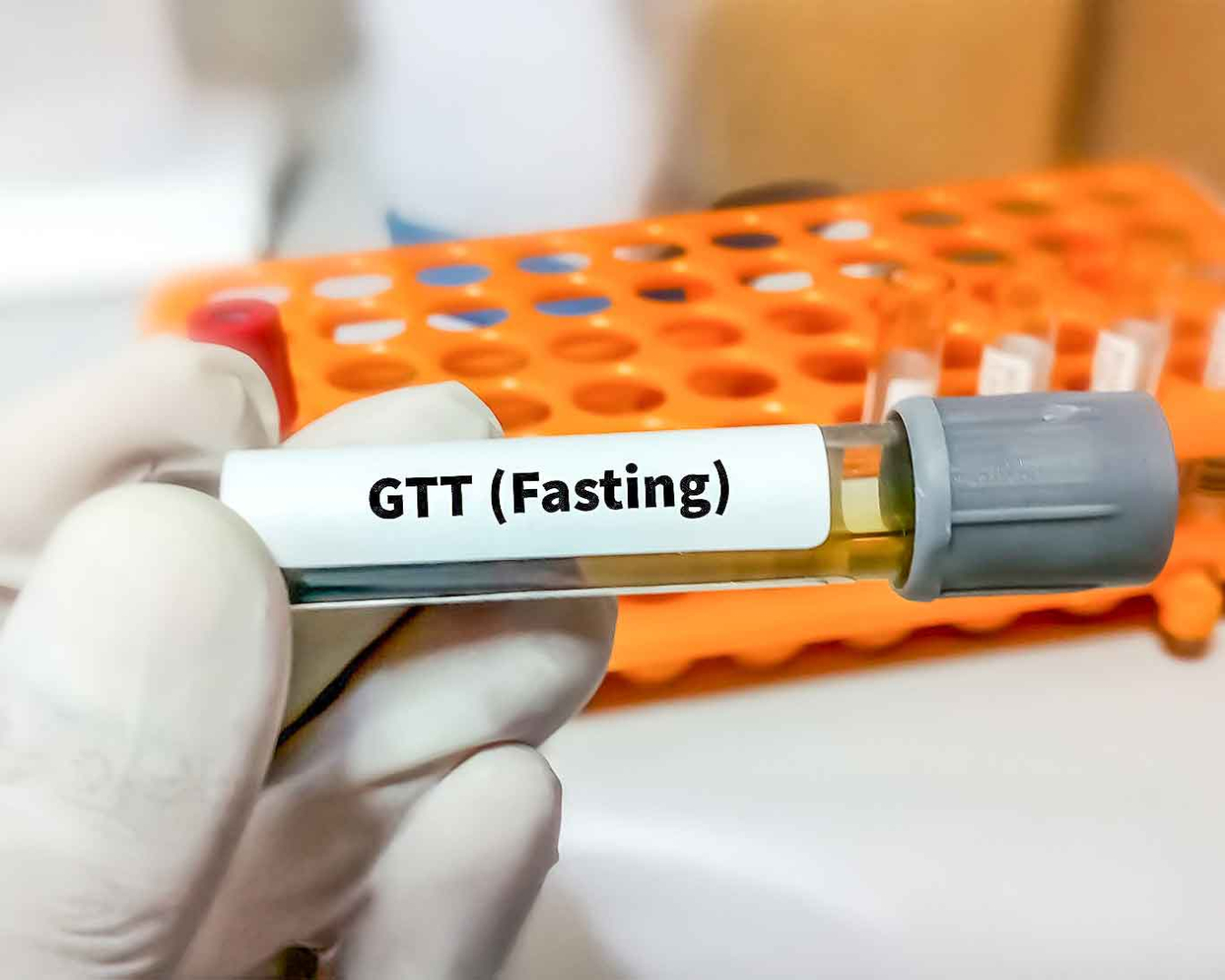Glucose Tolerance Test (GTT) in Abu Dhabi
At Elyzee Hospital in Abu Dhabi, our Laboratory & Diagnostics Department provides highly accurate Glucose Tolerance Testing (GTT) to evaluate how the body processes glucose. This essential diagnostic test helps detect diabetes, prediabetes, insulin resistance, and gestational diabetes, ensuring early intervention and safer health outcomes for both general patients and expectant mothers.
What Is the Glucose Tolerance Test?
The Glucose Tolerance Test (GTT), often referred to as the Oral Glucose Tolerance Test (OGTT), measures how efficiently the body absorbs and regulates glucose after drinking a glucose solution. This test is particularly important for diagnosing:
- Type 2 Diabetes
- Prediabetes
- Insulin Resistance
- Gestational Diabetes (during pregnancy)
GTT provides a deeper assessment compared to simple fasting blood sugar tests, making it a valuable tool for early detection and long-term health management.
Benefits of the Glucose Tolerance Test
Undergoing a GTT at Elyzee Hospital offers several important benefits:
- Early diagnosis of diabetes and prediabetes before symptoms appear.
- Detection of gestational diabetes to protect mother and baby during pregnancy.
- Evaluation of insulin response for individuals with metabolic disorders.
- Prevention of complications such as heart disease, kidney problems, nerve damage, and vision issues.
- Improvement of treatment outcomes through timely lifestyle changes or medication.
Who Should Get the Glucose Tolerance Test?
The GTT is recommended for:
- Individuals with elevated fasting blood sugar levels.
- Those with a family history of diabetes.
- People who struggle with obesity or lead a sedentary lifestyle.
- Patients with symptoms such as frequent urination, excessive thirst, or fatigue.
- Women with polycystic ovary syndrome (PCOS) or hormonal imbalance.
- Pregnant women between 24–28 weeks to screen for gestational diabetes.
- Individuals who had gestational diabetes in previous pregnancies.
Consultation and Preparation
Before taking the Glucose Tolerance Test at Elyzee Hospital, a consultation with a healthcare professional is required. During the consultation, the doctor will review your medical history, symptoms, and risk factors.
Preparation typically includes:
- Fasting for 8–12 hours before the test.
- Avoiding smoking or heavy physical activity before appointments.
- Informing your doctor about medications that may affect glucose levels.
- Pregnant women may receive additional instructions based on their prenatal care plan.
How the Glucose Tolerance Test Is Performed
The GTT consists of several steps, performed by our trained diagnostic staff:
- Fasting Blood Sample: A baseline blood sugar reading is taken.
- Glucose Drink: You will drink a measured glucose solution.
- Timed Blood Samples: Additional blood samples are taken at 1, 2, and sometimes 3 hours after drinking the solution.
These readings show how efficiently your body processes glucose over time.
After the Test and Recovery
There is no recovery period required. You may resume your normal routine and meals immediately after the test unless your doctor advises otherwise.
Your doctor at Elyzee Hospital will explain your results and may recommend:
- Dietary adjustments
- Exercise recommendations
- Medication if needed
- Further testing or follow-up appointments
Understanding Your Results
Typical glucose tolerance results:
- Normal: Body processes glucose efficiently.
- Prediabetes: Higher-than-normal levels but not diabetic.
- Diabetes: Consistently elevated glucose levels.
- Gestational Diabetes: Higher glucose levels during pregnancy.
Your doctor will interpret the values based on your specific readings and medical background.
Conclusion
The Glucose Tolerance Test is an essential tool for diagnosing and managing blood sugar-related conditions. Whether for pregnancy, routine health screening, or metabolic evaluation, GTT provides accurate insights that help prevent long-term complications. At Elyzee Hospital in Abu Dhabi, we ensure precise testing and expert guidance to support your overall health and well-being.












